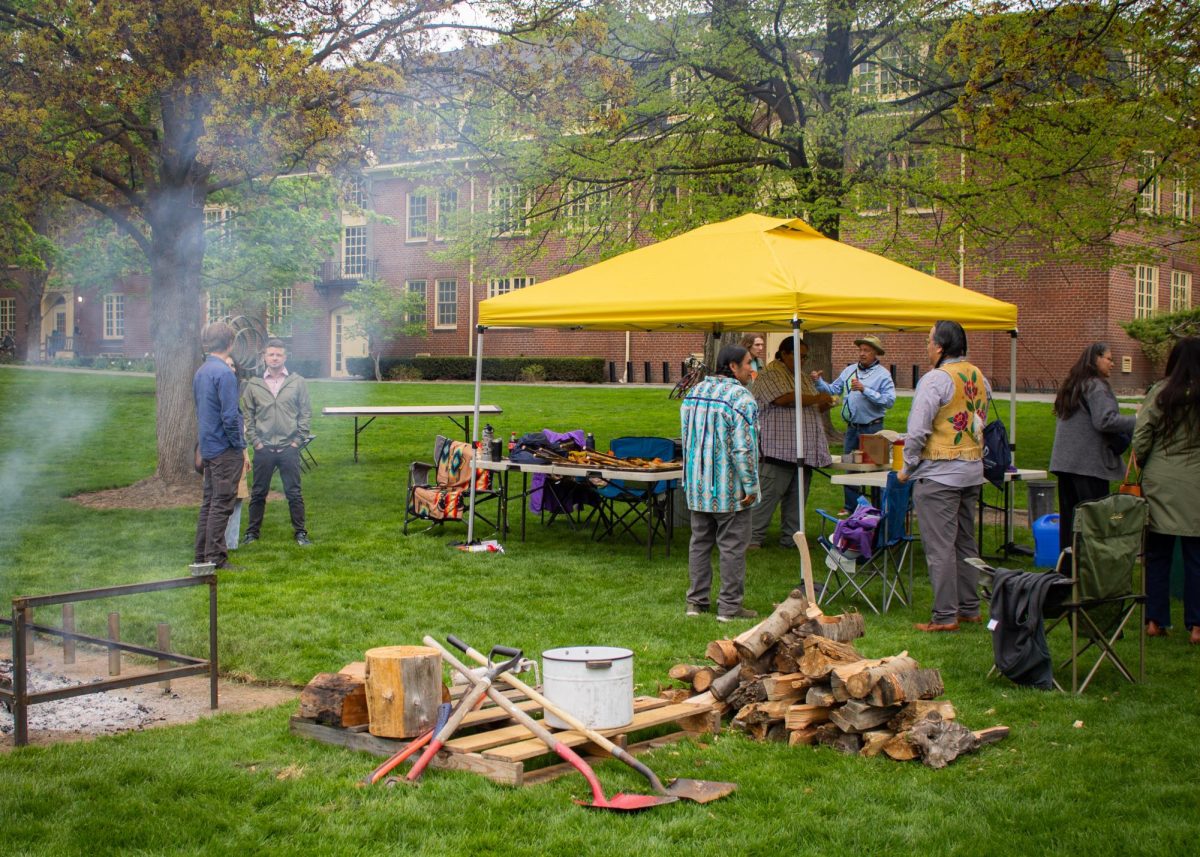Presenters of a Whitman College sex and relationship survey considered titling their presentation “Nobody else is getting any either,” “Sociologists can study anything and make anything boring” or “You’re not having as much sex as you think you are.”
Ultimately, sociology Professor Michelle Janning, senior sociology major Lydia Hayes and senior Institutional Research Intern John Frasene opted to title their April 1 presentation “Dating and Hooking up at Whitman College.” The presentation revealed results from an intensive survey of Whitman students conducted electronically earlier this year, as well as a second survey conducted by Hayes.
The survey was part of a larger nation-wide project, the Stanford University College Social Life Survey, led by Paula England, a 1971 Whitman graduate.
The survey was completed by over 600 Whitman students, nearly half the student population.
“We were really grateful for the huge response to this survey. Obviously it’s a topic that’s very interesting to a lot of people,” said Janning.
The survey questioned students about their dating, hooking up and relationships experiences and attitudes. Students were asked both about the frequency of certain activities, as well as what they wished would be possible at the school. The report, written by Frasene and Hayes, compared responses of Whitman students versus national respondents and Whitman males versus females.
Frasene looked at the data in greater depth by specifically comparing the responses of greek students versus independents, as well as heterosexual versus homosexual responses.
He found that greek students go on significantly more dates than the average independent Whitman student, but that the average number of dates for a greek Whitman student is significantly less than the national average. The same pattern holds true for hookups, although the averages for Whitman greek students versus national greek students are more similar for relationships.
The comparison of homosexual survey responses was more complicated. The national percent of homosexual respondents was 2.5 percent, while Whitman had 2.4 percent of homosexual respondents. While these numbers are similar, Whitman’s percentage, because the student population is much smaller, turns out to be only about 15 people.
“This makes this kind of hard to analyze, unfortunately. It makes gaps [in data] that look like they are significant turn out to not be significant. So you have to take it when a grain of salt,” said Frasene.
Janning said that the survey did cater to the LGBT community, but that the sample size still remained small, even on the national level.
“The cool thing that Paula [England] is doing is following up with qualitative interviews at her own campus at Stanford University, to find out more about the details of the people who have same sex relationships and hookups,” Janning said.
Hayes presented information that she gathered from a second survey that she conducted, looking more into reasons accounting for some of the statistics.
She discovered that Whitman students perceive sexual activity, dating and relationships to be much more common they actually are, and that students believe other students are much more comfortable with hookups than they actually are. She also concluded that the dating culture indeed has been lessened, due to the belief of Whitman students that it is not something that other students are interested in or take part in.
“My hope is that by presenting this data to you … we can start to make people realize the actual nature of the culture,” Hayes said. “And hopefully that will empower us to feel less pressure or less bad about how we are compared to other people, or to work within the system, or even alternately, I hope, to create a separate system.”
Sophomore Liz Townsend thought the most interesting piece of information was that there were more long term negative associations with hooking up than short term gratification.
“Regardless of these feelings, hooking up probably feels safer for a lot of people when you compare it to the impossible expectations and high stakes we place on ourselves and other people when it comes to dating at college. Really, I don’t think dating should be all that hard, but somehow it is,” Townsend said.
The presentation was sponsored by the Whitman College Office of Institutional Research. Results of the survey are available through this office.








